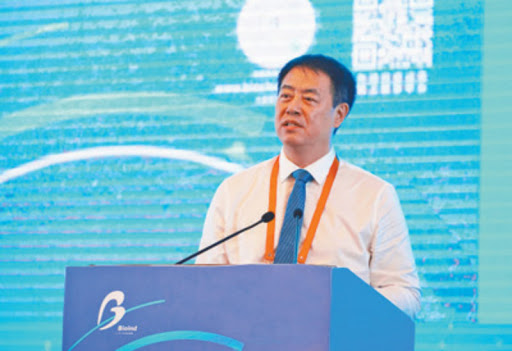By Jiang Lin, People’s Daily
COVID-19 vaccines are the most expected after the pandemic broke out.
China National Biotec Group (CNBG) under China National Pharmaceutical Group Corporation delivered outstanding anti-pandemic performance. It builtCOVID-19 vaccine production workshops, and the vaccine thatthe group developed has been approved for emergency use by China.
Apart from that, CNBG has been racing against the virus since the very start of the epidemic. Its research teams developed a COVID-19 test kit in just 48 hours, which was among the first batch of products recommended by China’s National Health Commission (NHC). Besides, the group also collected plasma from some recovered patients to prepare therapeutic products including convalescent plasma and immune globulin.
Such achievements couldn’t have been made without Yang Xiaoming, chief scientist of the vaccine project under the “863 program”, a national government-funded high-tech development initiative, and president of CNBG.
After joining a commendation conference for national response to COVID-19 on Sept. 8, Yang immediately started working eating a few mouthfuls of packed lunch. “I’ve already been used to this, as I have been eating packed meals for over nine months,” he said.
Yang always forgot to have meals or slept very little during work, saying what he did was a race against the virus. Scientists are warriors in the lab, and they need to fight, he told the People’s Daily.
After the outburst of COVID-19, Yang in no time sent his team to Wuhan and finally confirmed that the virus was a whole-new pathogen.
“We had too many unknowns facing the new virus, so we had to establish a comprehensive response plan as soon as possible,” said Yang, who has studied infectious diseases for over 20 years. He quickly established a command center with his team to develop test kit. Meanwhile, they also started vaccine development.
When the team was working for test reagent, Yang would call the R&D personnel almost every hour to see how things were going.
“It was really urgent. My cell phone was totally a hotline, and I had to charge it at least three to four times a day. I couldn’t miss a single call, so that I could learn the progress and solve problems,” he said.
The high intensity of work led to a rising blood pressure of Yang, and he had to control it by taking drugs. “The medical workers are battling on the frontline, so we must fight, too,” he said. Finally, the test kit was developed within 48 hours.
Soon after that, he led his team to the new battlefield – COVID-19 vaccine development.
During those days, how to make safe vaccines as soon as possible was all he was thinking. After rounds of researches, CNBG decided to take multiple approaches to develop inactivated vaccines.
“We resorted to multiple approaches because we didn’t know too much about the virus back then, and we chose inactivated vaccines because the techniques and production platforms are mature, so we were able to launch massive production easily,” he explained.
CNBG decided to start researches of inactivated vaccines at two of its biological product institutions in Beijing and Wuhan simultaneously, which meant it must expand its investment. “Such a ‘back-to-back’ method enabled us to compare the results, so as to ensure the safety and reliability of the vaccines. In addition, the competition between the two institutions also improved our efficiency,” Yang said.
When the vaccine was just approved for clinical test, Yang became the first one to be injected. After phase-I and phase-II clinical tests, no severe side effect happened among all those injected.
“Without enough output, vaccines, no matter how great they are, cannot shield people from diseases. Therefore, we must massively produce them,” Yang said. That’s why CNBG has built COVID-19 vaccine production workshops in both Beijing and Wuhan.It took only 60 days to build the workshops. The one in Beijing was completed on April 15, and the one in Wuhan on July 1.
“We’ll do everything to finish the ‘last mile’ of COVID-19 vaccine development, and build a fence to protect people’s health with concrete actions,” Yang said.












